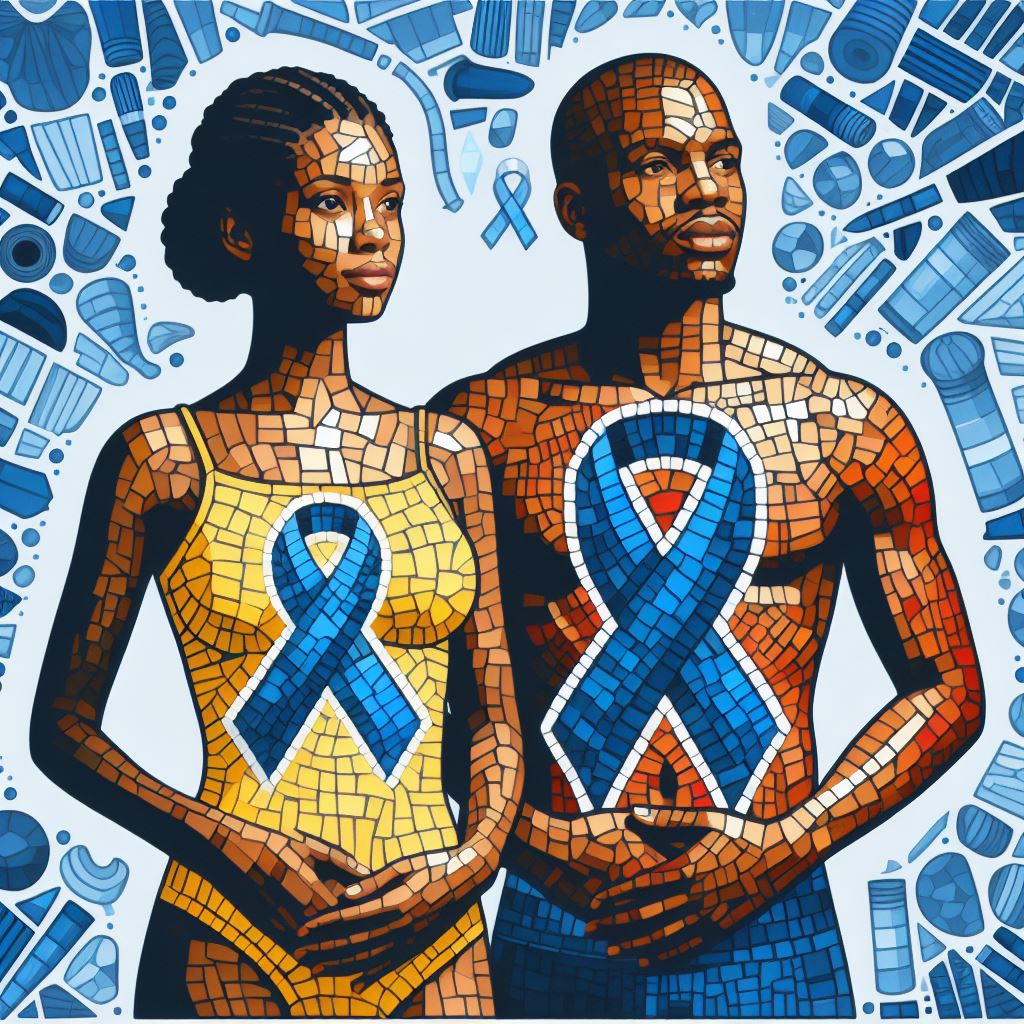by Tara E. l Updated February 28, 2025
The world was deeply saddened when Chadwick Boseman, the superhero of “Black Panther,” passed away from colorectal cancer in 2020. His untimely death brought attention to a disease that many didn’t talk much about. How can someone in their prime pass away from a condition that is stereotypically confined to those over the age of 50? His passing shines a light on the need for colorectal cancer screening for adults under 50.
Who’s at Risk for Colorectal Cancer?
You might wonder, “Who needs to worry about colorectal cancer?” The truth is that it can affect anyone, but adults over 45 are at a higher risk. African Americans face a more challenging battle, often receiving a late diagnosis when it’s harder to treat. Recent studies have highlighted that African Americans have a significantly higher risk of colorectal cancer compared to other groups. According to the American Cancer Society, they are about 20% more likely to develop the disease and 40% more likely to die from it. Additionally, research from Memorial Sloan Kettering Cancer Center suggests that tumors in African American patients may be less responsive to certain treatments, which could impact survival rates. Factors such as limited access to healthcare, disparities in preventive screenings, and potential genetic differences may contribute to this increased risk.
Now that we know who’s at risk, let’s dive into why this is happening more often, especially to younger people and certain racial groups.
Digging Deeper: Why Is Colorectal Cancer Happening in Adults Under 50?
It’s a bit of a mystery why more young people, particularly African Americans and Hispanics, are getting colorectal cancer. Experts think our modern diets and lifestyles might be part of the problem. Also, not having the same access to healthcare and certain genetic factors play a role. Understanding these reasons is key to fighting back.
So, what can we do about it? The next section has some important advice.
Taking Action: How Can We Fight Back?
The battle against colorectal cancer begins with awareness and proactive steps towards prevention. Medical experts now recommend starting colorectal cancer screenings at age 45, especially for those with a family history of the disease or who experience noticeable changes in their health. These screenings are crucial—they can detect cancer at its earliest stages or even prevent it by identifying and removing precancerous polyps.
Improving Your Diet for Colorectal Cancer Prevention
A healthy diet is pivotal in lowering your risk of colorectal cancer. Incorporating a variety of fruits, vegetables, and whole grains into your meals can provide essential nutrients and fibers that help protect your colon. Fiber-rich foods, in particular, are beneficial as they help keep your digestive system running smoothly and reduce cancer risk.
- Fruits and Vegetables: Aim for a colorful plate with various vegetables and fruits. These are ripe with antioxidants and phytochemicals that may combat cancer.
- Whole Grains: Replace refined grains with quinoa, barley, whole wheat, and oats to increase fiber intake.
- Limit Red and Processed Meats: Studies suggest that reducing the consumption of red meats (beef, pork, lamb) and processed meats (sausages, hot dogs, deli meats) can decrease colorectal cancer risk.
- Stay Hydrated: Drinking plenty of water is essential for maintaining a healthy digestive system.
Anti-Inflammatory Diet Cookbook Options
Lifestyle Modifications to Reduce Risk
Beyond diet, there are several lifestyle changes you can make to reduce further your risk of developing colorectal cancer:
- Regular Exercise: Regular physical activity can significantly lower your risk. Aim for at least 150 minutes of moderate exercise or 75 minutes of vigorous weekly activity.
- Limit Alcohol and Quit Smoking: Alcohol consumption and smoking increases the risk of colorectal cancer. Limiting alcohol and quitting smoking can have numerous health benefits, including cancer prevention.
- Maintain a Healthy Weight: Being overweight or obese increases your risk of colorectal cancer. Adopting a healthy diet and regular exercise routine can help manage your weight.
Colorectal Cancer Screening: Your Role in Preventing Colorectal Cancer
It’s up to all of us to take a stand against colorectal cancer. If you’re 45 or older, make sure to schedule a screening. And it’s not just about you—talk to your family and friends about getting a screening, too. By keeping an eye on our health and making smart choices, we can all help to prevent this disease.
Early Detection Through Screening
Screening for colorectal cancer is a powerful prevention tool. Several screening tests are available, including colonoscopies, stool tests (FIT-DNA test, guaiac-based fecal occult blood test), and flexible sigmoidoscopy. Discuss with your doctor which screening option is best based on your risk factors.
Colorectal cancer screenings help to detect cancer early when treatment is most effective. For those with a higher risk, such as a family history of colorectal cancer or certain genetic conditions, your doctor may recommend starting screenings before age 45.
Encouraging Loved Ones to Get Their Screening
Part of taking action against colorectal cancer involves encouraging friends and family to complete a colorectal screening. Sharing information about the importance of early detection and how lifestyle changes can reduce risk can save lives. Offer support and help them understand the screening process, making it less daunting to take that first step.
Conclusion: A Call to Action for Everyone
It’s time to bring our journey through this article to a close, but the fight against colorectal cancer is ongoing. Chadwick Boseman’s passing is a reminder to us that colorectal cancer can affect anyone, but it also should inspire us to take action. By understanding the risks, knowing why the disease is on the rise, and getting a colorectal cancer screening, we can protect ourselves and our loved ones. Let’s honor those we’ve lost by spreading the word and encouraging everyone to take their health seriously. Together, we can make a difference in the fight against colorectal cancer.
Article Source: Loftus, E. (2023). Seeking Clues to Early Onset Colorectal Cancer. American Association of Cancer Research.
More from Mahogany Speaks to You

Colorectal Cancer: The Silent Killer

Preventing Colorectal Cancer: Diet and Physical Activity
🎙️ Listen to “The Rooted Will, Rising Advocate” Podcast
Dive deeper into this topic with our podcast episode:
Colorectal Cancer: What You Need to Know! Join our podcast as we explore.
🎧 Listen now and gain valuable insights:
💡 Why tune in?
- Get perspectives on Colorectal Cancer in the African American Community.
- Hear practical tips to increase your chances of prevention.
- Stay inspired and informed with every episode.
🔗 Subscribe to the podcast on Spreaker or find it on your favorite platforms like Spotify, Apple Podcasts, and Google Podcasts.
